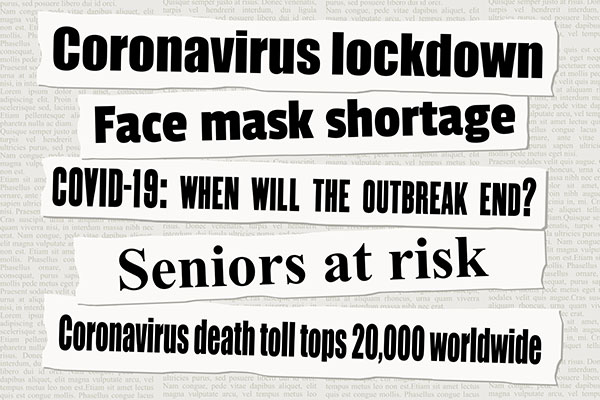Food, drug shortage crisis rages on: Numerous pharmaceuticals to run out before end of 2023
06/19/2023 / By Ethan Huff

The “experts” promised us this would never be a problem, but the lingering effects of the Wuhan coronavirus (Covid-19) “pandemic” – or so we are being told – have created a persistent shortage of food and pharmaceutical drugs across the United States.
CNN published a piece recently stating that we are currently in “the worst food crisis in modern history” while common drugs like antibiotics and specifically penicillin are slated to run out entirely, in some cases, before the end of 2023 – just a few short months away.
Pfizer announced that several kinds of penicillin, used to treat syphilis, strep throat, and other infections, will no longer be available after the third quarter of this year, which ends on September 30.
“The company anticipates running out of the children’s dose of the syphilis drug Bicillin L-A by the end of June, according to a letter Pfizer posted Tuesday on the Food and Drug Administration’s website,” reports explain.
“The company says it’s prioritizing production of larger doses of Bicillin L-A, which is recommended for pregnant [women] with syphilis because it is the only drug that can pass through the placenta and also treat the fetus.”
“A different Pfizer penicillin, Bicillin C-R that treats other bacterial infections but not syphilis, is expected to run out in the third quarter, which ends Sept. 30. Pfizer’s penicillin has been in shortage since April.”
(Related: The U.S. Food and Drug Administration [FDA] is also targeting homeopathy as all of this has been going on to eliminate at least one natural alternative to the drug shortage.)
Will America survive another year?
Another drug class in short supply is chemotherapy, which a recent survey found is less available than it should be at most cancer treatment centers across the United States.
A “temporary closure of a drug manufacturing facility in India that happened after the Food and Drug Administration (FDA) found issues in the plant’s quality control” is being blamed on this persistent shortage.
Doctors are already having to ration care, in some cases, because they simply cannot obtain widely used chemo drugs such as cisplatin and carboplatin – either that or they are turning to alternative remedies instead.
The New York Times reported that there are now shortages of “hundreds of drugs” in the U.S., which is “commanding the attention of the White House and Congress, which are examining the underlying causes of the faltering generic drug market, which accounts for about 90 percent of domestic prescriptions.”
Then we have the cocoa crisis with global cocoa supplies being extremely tight. Prices have already soared 44 percent over the last nine months to reach seven-year highs.
“The cocoa market has experienced a remarkable surge in prices,” said S&P Global Commodity Insights’ Principal Research Analyst Sergey Chetvertakov. “This season marks the second consecutive deficit, with cocoa ending stocks expected to dwindle to unusually low levels.”
There are also supply issues with both sugar and coffee as sugar and coffee prices hit decade highs and record highs, respectively, in recent days. Food banks are also seeing “the biggest food shortage in 40 years,” to quote Frank Sheppard, CEO of Feeding the Valley Food Bank.
“And it’s pandemic related,” Sheppard said. “It’s really a number of causes our federal government and state governments provided a plentiful amount of food during the pandemic to help so many more people in need. And those supply lines are just a little slow to replenish.”
“Then you have the whole supply chain issue. Things are just taking 3, 4, 5, 10 times as long to get to us as they used to and rapid inflation is affecting a lot of people, a lot of our donors as well. So, it’s really just a perfect storm, unfortunately of circumstances that has got our inventories at record low levels.”
Will the United States even make it beyond 2023? Learn more at Collapse.news.
Sources for this article include:
Submit a correction >>
Tagged Under:
Collapse, COVID, dangerous, drugs, food, Inflation, pharmaceuticals, risk, shortage, supply chain
This article may contain statements that reflect the opinion of the author
RECENT NEWS & ARTICLES
COPYRIGHT © 2017 RISK NEWS



















